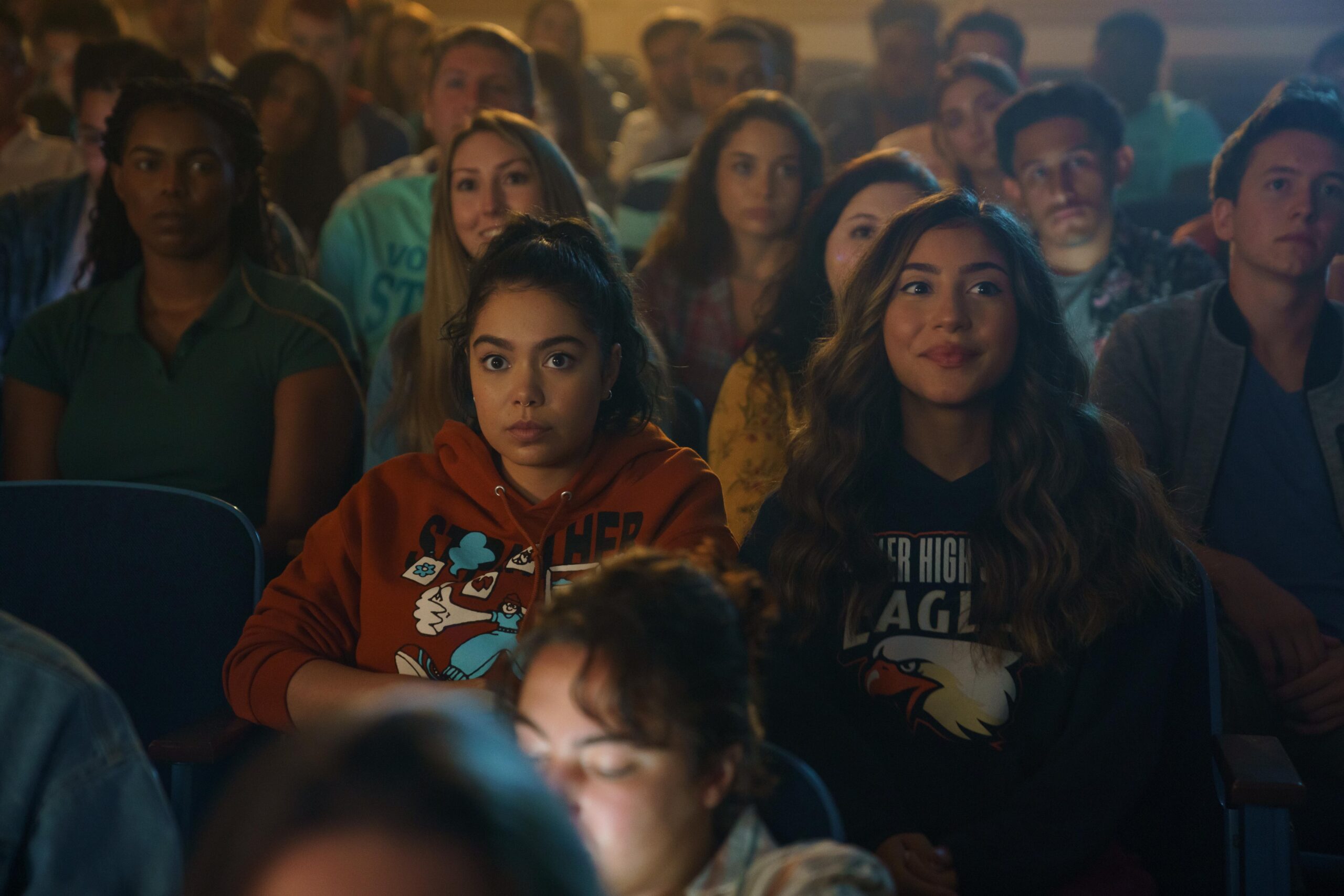Since the 1980s, teen rom-coms have marked their permanent place in the legacy of American cinema. But too often, if they’re not celebrating toxic relationships, they’re pushing an all-white cast to the forefront and centering a half-baked heterosexual romance we’ve seen a million times before. If marginalized groups are included, they’re the best friend, the sidekick, the mean girl. We watch enough of these and we begin to believe it when they imply we’re not worthy of being the main character of our own stories.
Then, I saw that Hulu had just dropped a new movie called Crush, starring Rowan Blanchard, Isabella Ferreira of Love, Victor fame, and Auli’i Cravalho, the iconic voice of the title character in Disney’s Moana. The film follows Blanchard’s character Paige as she struggles to find her voice as an artist and go to a prestigious art camp, all while she’s been accused of painting graffiti around the school. She only avoids being suspended when she offers to run for the track team, throwing her in a love triangle with her long-time crush Gabriela Campos (Ferreira) and her sister AJ Campos (Cravalho)—both queer Latinas!
What ensues is a hilarious and ultimately heartwarming movie about embracing identity, being fearless, and letting go of fantasies for the real, much better thing—all in the name of queer love. Turns out, the teen rom-com isn’t dead.

Throughout Crush, I loved seeing healthy messages about family, love, and relationships. We see Paige and her mom talk openly about sex and dating. Instead of a big coming-out moment, we see all types of queer experiences being celebrated and normalized, both in sexuality and gender. And most importantly, we see queer Latina experiences being embraced through Gabriella and AJ.
They are a big part of what makes this movie work so successfully. While they’re not the leads, it still feels good to see them desired and wanted without, of course, being oversexualized into the hypersexual, fiery Latina stereotype. They’re painted as real human beings with insecurities, fears, and longings. I loved how whenever Paige would look at them and begin to pine, spots of color exploded behind their head to mimic her artistic tendencies and literally paint them in a gorgeous, uplifting light.
While Gabriella and AJ are sisters and both queer, the movie makes them as different as possible and so defies the stereotypes of queer experiences. Gabriella is the popular girl, the one in an on-again, off-again relationship with a nonbinary student at the school. She seems to be an unreachable goddess but then turns out to be a teenager just like Paige, who laments the fact that she’s always being left and broken up with. AJ, the girl Paige assumes to be the brooding, mysterious bisexual who skates and wears dark clothing, reveals herself to be surprisingly affectionate, sensitive, and artistic. Their sexuality is part of who they are without being their entire personality or identity.

And it is validating that the movie doesn’t ignore the rampant homophobia in the Latinx community but also doesn’t make it a tragic backstory or focal point of either one of their characters. In one pivotal scene, AJ talks about her coming-out moment to Paige, mentioning that her abuela didn’t say anything after it happened and that her mom pretends not to know. It’s a painful but necessary reminder that the white liberal queer experience is often so far removed from the queer experience of marginalized communities. It was great to see that balance between the two: the movie’s utopia where the LGBTQIA+ community lives without fear and oppression, and yet also the acknowledgment that such a privilege only extends to certain people in the real world without losing hope that things will get better.
Of course, I wouldn’t go so far as to say this is the perfect film. At times, its quirkiness and desire to reach and relate to its teen audience felt desperate, like it was trying to be the 2022 Mean Girls or Juno rather than its own thing.
But at its heart, Crush is a long-overdue ode to all types of adolescent experiences and queer women on screen, normalizing and celebrating both. As a queer Latina myself, seeing Gabriella and AJ felt like a love letter to the teenager I was who needed to see a film like this at that age.
All that to say, we need more LGBTQIA+ love stories on-screen. More women falling in love with each other on-screen. Because we fall in love just like everyone else and our love stories deserve to be seen and celebrated.

